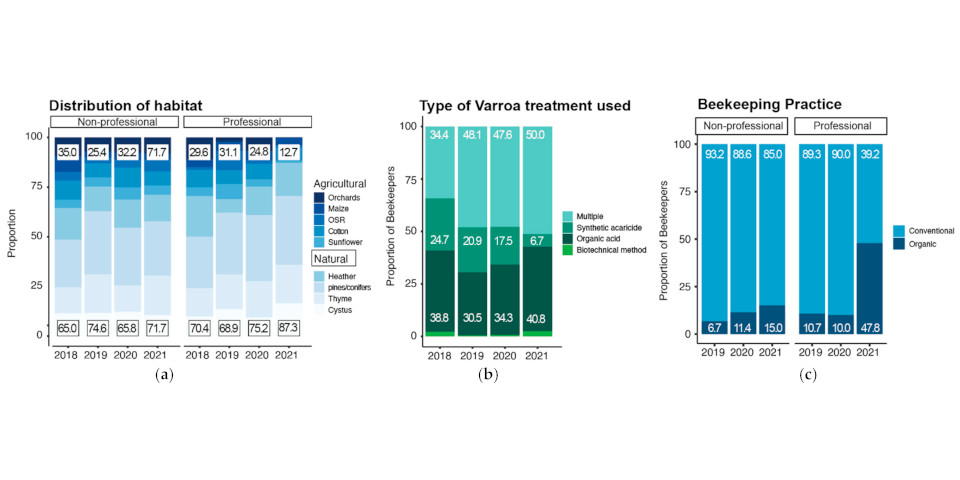The honey bee is one of the most important pollinators with a close relationship to humans. The questionnaire from the non-governmental association “COLOSS”, answered by beekeepers around the world, is a valuable tool for monitoring and analyzing factors involved in overwintering losses, as well as for understanding the evolution of the beekeeping sector over the years. Between 2018–2021, Greece’s participation in this survey involved collecting data from 752 beekeepers and 81,903 hives, from almost the whole country, with a stable balance between professional/non-professional participants and hives, providing a solid representation of the beekeeping practices and winter losses during this period. The results of this study identify a transition towards more natural beekeeping practices concomitant with a significant decrease in winter losses (average losses in 2018: 22.3% and 2019: 24%, dropped in 2020: 14.4% and 2021: 15.3%). Indeed, some factors, such as the increased use of natural landscapes for honey production (from 66.7% usage in 2018 to 76.3% in 2021) and the reduction in the exclusive use of synthetic acaricides (from 24.7% usage in 2018 to 6.7% in 2021) seem to have a significant impact on hive survival. Although these correlations remain to be confirmed experimentally, our study shows that Greek beekeepers follow recommendations and policies toward more sustainable practices. In the future, these trends could be further analyzed and integrated into training programs to strengthen the cooperation and information exchange between citizens and science.
2424 Members
127 Countries!
127 Countries!










